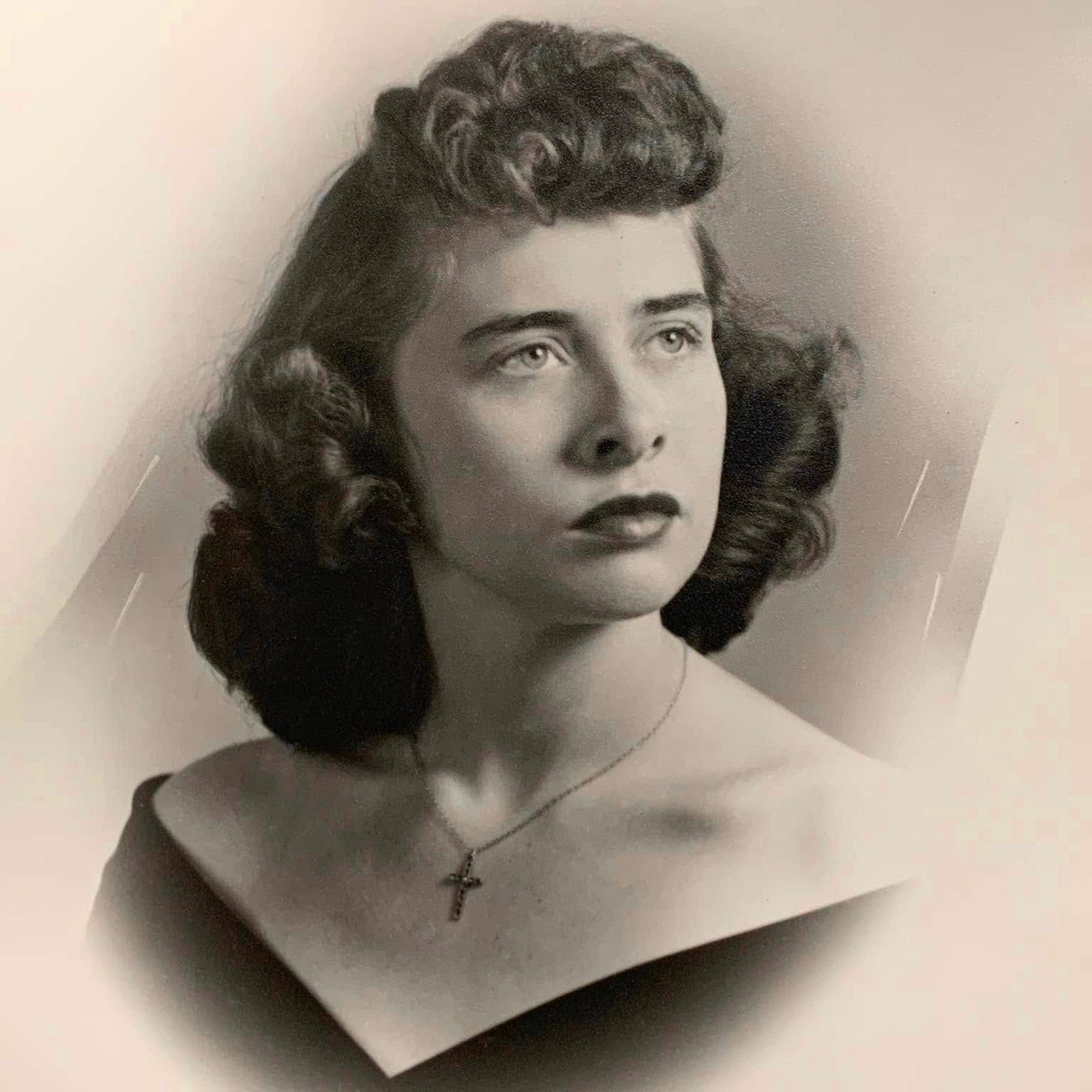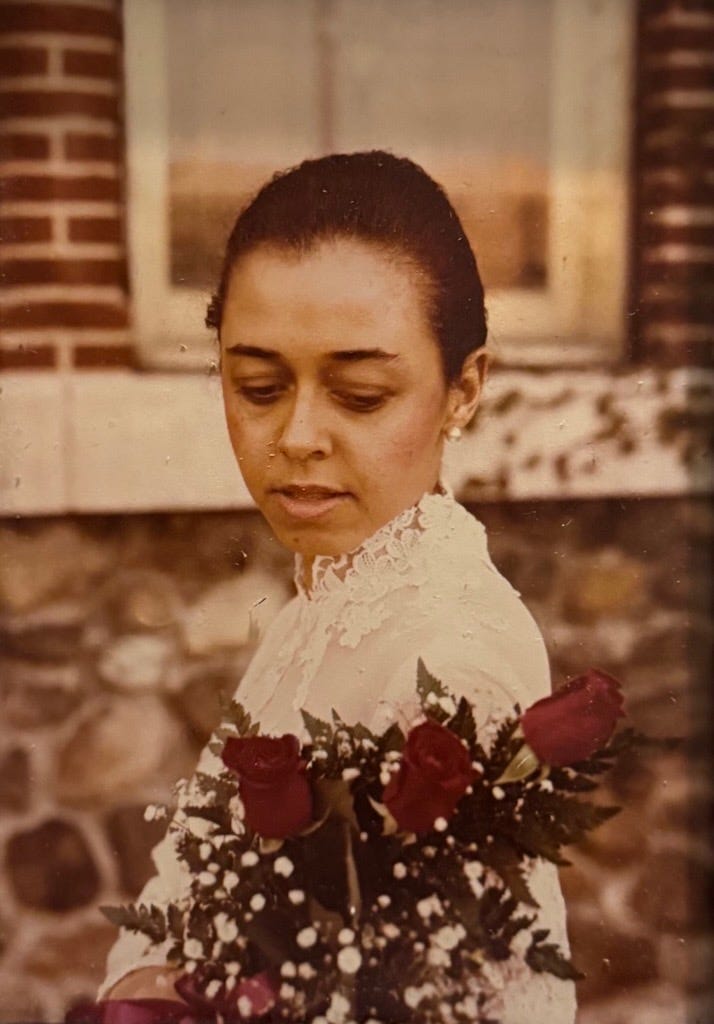My grandmother died on Halloween, and I don’t remember what my costume was. I was seven, and had spent the evening trick or treating with my dad and brother while my mom was in Decatur saying goodbye. My dad sat us at the kitchen counter. My pillowcase of Snickers to-be-traded and Kit Kats to-be-kept was probably slumped on the living room floor, waiting. When he told us, I remember turning to my brother, and seeing him cry. He pinched the bridge of his nose and squeezed his eyes shut, his body shaking with tears. I chose to do the same, performing out of an obligation I didn’t yet understand. All I knew was that my eyes were dry and the yearly candy bartering between siblings was probably canceled.
My grandfather, Tet, died sometime in my middle school years. I think it was seventh grade, but it could’ve been sixth. It wasn’t a surprise, as his lung cancer had placed him on hospice - a word that might as well mean waiting. I remember the dying but not the death. I can’t recall how I found out, and I don’t think I cried. The only thing I remember about the services was that it was freezing outside and he didn’t look like himself in the casket. My grandmother told me he lamented that he’d “never see his baby graduate.” And at the time, I smiled, unsure of what to say. For a while after that I forgot she told me. Years later, trying on my gown for the first time, I remembered.
My aunt Linda died when I was 16, and again, hospice set the tone. My mom Facetimed her sister every day and every day I came home from school, asking how she was. It feels like a stupid question now, and it did then too, but what I think I was asking for at the time, or rather, hoping for, was the familiar “she’s mostly been sleeping.” The day I came home and mom hesitated, and pulled her lips inward, I finally cried for real.
At the funeral I cried again, harder, or maybe just the same. My oldest brother hugged me, the other kept his eyes down most of the time, tears drizzling, and I better understood the boy at the counter. The preacher said “if you’re not a believer, you’ll never see her again.” Tears of loss turned to a funnel cloud of anger in my chest. How do you choose a belief? I thought about my grandma then, and Tet too, and then I pushed it all down and away.
In the past few years, peppered memories of my familial ghosts have come back. Fondness and laughter and faded outlines of recollections I was too young to stamp properly in my mind have flowered. I feel like I didn’t remember any of it then, and I don’t know how, considering then was the present and now is the past. Regardless, eighteen years after grandma, twelve after Tet, and nine after aunt Linda, it’s now that the weight in waiting has borne its fruit.
I don’t know if I mourn my grandmother or the fact that I don’t really remember her. What kind of love can a seven year old really give? And in that, what strength of sadness could I have felt? Emotion in those years was infantile, animal. Felt but not understood. Powerful but weightless. Spoken without vocabulary. Just there, breeding itself for future context.
The compassion I have for the child I was, encountering the big Death for the first time, is not a remedy for resenting that my memories of my grandmother are mostly conceptual. I know her face from pictures instead of my mind, her spirit from my mother’s testimony, and her love from birthday trinkets and a stuffed bunny I only recently took out of the top of my closet. And even still, this delayed gratification is far away: more of a ramification, a reminder that I’m cradling abstractions. This I grieve.
Tet was hilarious. Boisterous. Foul-mouthed. Charmingly flippant. I loved him. Back then I loved him like a middle schooler could, and today, with all the memories fully colored in my mind, I love him like he’s still here. But my love and my guilt of not being a twelve year old who could love like an adult combat each other nearly every day. I didn’t appreciate him the way I do now. It was there how it could be, swimming amidst the fireworks of neural development and the defining qualities of an isosceles triangle, but it was ungrateful love. It was the appreciation of a person without the cognizance of potential severance, rather sudden or slow.
Now, I think about how I somehow inherited his copy of Men in Black on DVD, but urged to preserve it, have never opened the case. I remember his red leather pants, his ponytail, his fast-and-loose use of expletives, and how he loved all of us. I can see his chair in the living room of the south side home my grandmother packed up and left. And I can feel my love for him has grown and matured alongside my brain, taking up more space than old geometry lessons, and I’m grateful and sad about it.
My aunt Linda’s death is the only one I’ve never had to ask questions about. I felt it actively, presently, tangibly. I’m not without regrets, but I don’t think any death leaves behind guiltless mourners. When I think about her I think about weekends in Merrillville getting manicures and sleeping in a guest bed that felt five feet off the ground. I remember her at recitals, barbecues, and holidays. I think about breaking her hammock in elementary school, jumping on it carelessly and hearing the wood snap. I told her I’d raise money to fix it, but I never did. I knew her well, and still, find myself wishing I knew her more.
I think about the last time I saw her in person. She was in a hospital bed, and the cancer had spread to her brain. She couldn’t speak. I was so focused on myself, on “acting natural,” on trying to suppress my discomfort. The first thing I said was “how are you?” and instantly regretted it. She widened her eyes and gave a sarcastic smile, the only communication she could muster. I still feel dumbfounded, ashamed, and hopeful that she knew that I didn’t know what to say; that it wasn’t her that made me nervous, it was finally being old enough to have to cope in real time; that I loved her, and that of course I knew she wasn’t okay, but I wanted to be normal for her and for my mom. Even if normal wasn’t what any of us needed nor had.
I hate late mourning. I don’t want to mourn at all, but through this fear of it, find myself mourning all the time. Mourning those lost and those inevitably to lose. For years I tried to think up a solution to yanking this petulant sword out of the stone, as if I was gonna wield Excalibur myself after generations of philosophy and organized religion. I don’t see this pessimistically most of the time. I’ve come to see its beauty. I wish I loved then way I do now, but this heft of emotion is on the account of time spent with people, whether in life or memory. That’s aging. I wish for myself to grow into comfortably carrying this love as it is and as it changes.
I love those I’ve lost more than I did when they went wherever people go. As a stubbornly non-religious, but desperately answer-seeking individual, I hope this is what love and grief are: two sides of the same currency. The shiny penny on the sidewalk; the crumpled but fateful five buck note we find in a coat pocket; and even the quarter short we are on our final load of laundry. Lucky and unlucky money that holds value despite us.







“I don’t know if I mourn my grandmother or the fact that I don’t really remember her. What kind of love can a seven year old really give? And in that, what strength of sadness could I have felt? Emotion in those years was infantile, animal. Felt but not understood. Powerful but weightless. Spoken without vocabulary. Just there, breeding itself for future context.”
Mourning has been the most pervasive and unforeseen challenge of adulthood. I mourn often and for so many. For those I lost before I understood what grief was. For the child I never got to be after becoming too acquainted with grief. For the questions never asked, the feelings never expressed, and the time never shared as I attempted to run from grief. I’ve found great reassurance in your words, knowing I’m not alone in this struggle.
Looking forward to more of your words and wisdom. <3
Love all yor work Niece. Keep up the good job.
Unk Eric